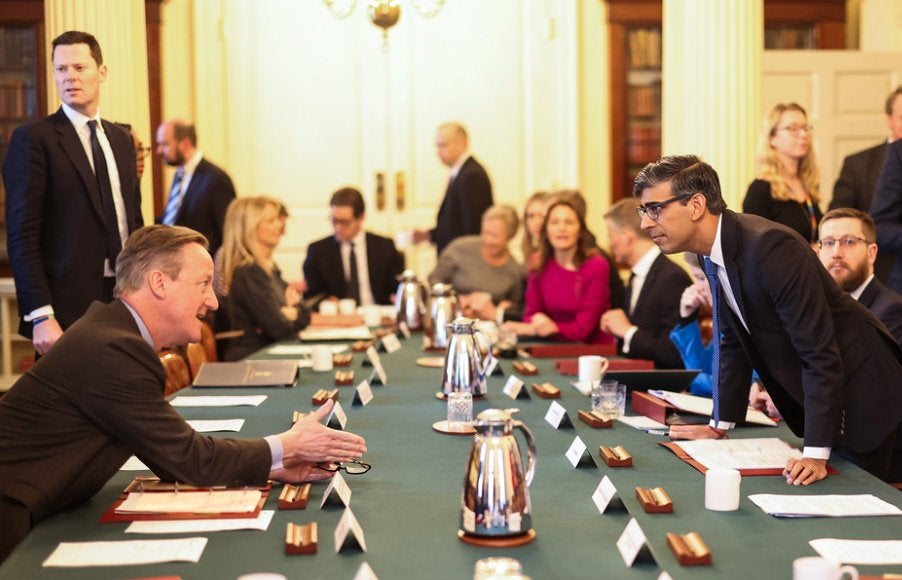The Tory civil war is about so much more than stopping small boats
Today’s rebellion is not just over the Rwanda policy; it is about how the party handles imminent defeat – which, by the looks of things, will not be very well, writes John Rentoul


The Conservative Party is close to giving up. Today’s infighting seems to be about the finer legal details of the government’s plan to remove asylum seekers to Rwanda – but it is really about how a group of people faces defeat.
In order to understand the debates and votes in the Commons today and tomorrow we need to look to sports psychology rather than to parliamentary procedure. This is about how a team that has fallen far behind comes to terms with the growing certainty of losing.
In sport, players have two main ways of dealing with adversity. One is to urge each other to try to secure a heroic comeback against the odds. The other is for them to turn on each other and blame someone, usually the goalkeeper, for the fact that they are losing.
Yesterday, Isaac Levido, the Australian consultant who is in charge of the Conservative election campaign, pleaded with the dressing room, otherwise known as the 1922 Committee. “Let me be clear,” he said. “Divided parties fail. It’s time to get serious – I am fighting to win this election, and I wouldn’t be here if I didn’t believe it was possible.”
But Levido’s appeal was in effect an admission that the party had already decided to go down the blame-each-other route. He criticised the shadowy group of donors working with Lord Frost to organise a seat-by-seat poll for The Daily Telegraph, saying they “seem to be intent on undermining this government and our party”.
He went on: “They seem to be throwing in the towel, and are more interested in what happens after the election rather than fighting it – making the pathway narrower and steeper.”
This went down badly with some Tory MPs intending to vote against the government on the Rwanda bill.
The fundamental problem that Levido faces is that, although the majority of Tory MPs may want to unite to try to minimise the party’s losses at the election, there are too many in the minority who don’t care.
They won’t stop the Rwanda bill. Many of them will vote against the government for amendments today and tomorrow, but not enough will vote against when it matters, on the bill’s third reading. At that point, they have to decide whether or not they want to destroy the bill altogether, without knowing what might take its place.
It is notable, as Tory MPs queue up on the media to condemn the bill, that they say they will vote for amendments or that they “cannot vote for” the bill if the amendments are not made. Lee Anderson, who will probably not be a deputy chair of the Tory party by the time you read this, has said he will defy the government to vote for amendments but has not said that he will vote against the bill itself. There are very few Tory MPs who have declared that they will vote against the bill at third reading tomorrow. At the time of writing there are four: Suella Braverman, Miriam Cates, Simon Clarke and Robert Jenrick.
The rebellion makes no sense. They don’t have the numbers to defeat the government. They cannot win their amendments, because Labour won’t vote with them. And they cannot defeat the bill itself: many Tory MPs might abstain; not so many will vote against. Even if they could, there is no majority in the Commons for an alternative bill that would more explicitly contradict international law.
All they are doing is undermining the government, by agreeing with the Labour Party that the bill won’t work – albeit for different reasons. And all that the general public sees is a Tory party at war with itself, which will confirm Levido’s argument that “divided parties fail”.
But they cannot help themselves. The Conservative Party has once again gone beyond the point it passed before the 1997 election. Then, John Major pleaded with Tory candidates not to oppose the European single currency in their personal election manifestos. There was little chance of the UK adopting the single currency, because both parties were committed to a referendum on the subject. All the Tory rebels did was present their party as divided and make the election of a Labour government – more sympathetic to the single currency – more likely.
Then, as now, it is not the issue itself that matters. This is not about the asylum system. It is about the Tory party staring defeat in the face and dealing with the prospect very badly indeed.
Join our commenting forum
Join thought-provoking conversations, follow other Independent readers and see their replies
Comments
Bookmark popover
Removed from bookmarks